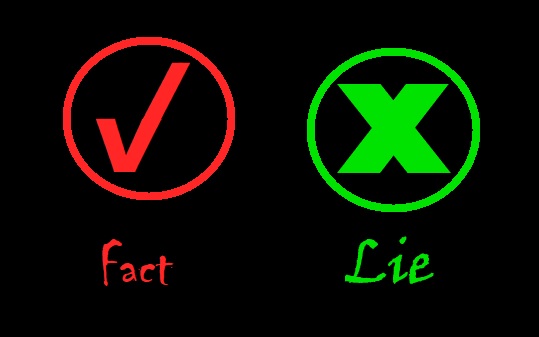Poorly Explained
By Anthony Casperson
1-27-24
There was a YouTuber who streamed a game while conversing with his viewers in the chat. He rarely liked the chat helping him with the gameplay, but this one time, he actually asked for some help.
With such a rare opportunity, his viewers gave him the correct answer. However the way they described what he needed to do wasn’t clear enough for him. And when the YouTuber attempted to do as they said, he did it incorrectly. Thus, the correct answer seemed to not work. Their truthful response was applied incorrectly and failed to help the man.
However, when he attempted the task with his own flawed method—something that should never have worked—there was some glitch in the game that acted like he’d completed the task correctly; and he was able to continue on with the game. At this, the man stared at his camera and said something to the effect of, “This is why I don’t trust chat, they think they know what they’re doing, but don’t have the right answer.”
The problem wasn’t that the chat’s answer was wrong, but that it was incorrectly described and implemented. It made the viewers look like they were wrong even though they were technically correct.
This is one of the reasons why we need to be clear when we’re trying to teach/correct somebody. And why we must always be sure to look deeper into the things that we’re taught/corrected in. We don’t want the truth to look like it’s wrong just because it wasn’t properly explained. Nor do we want something that’s wrong to slip past as truth just because the truth looked like a lie.
And this is especially true when it comes to discussions of more important things than a video game.
Earlier this week, I was watching a biblical teacher critique the false doctrine that another person held. I’m not going to get too far into the specifics of the topic they were talking about, since it’s part of a hotbed topic among those who claim to follow Jesus. And I don’t want my point to get lost in the heat of the argument. However, for ease of explanation, I will still list out the verses about which they debated. (So if you wanna look up the verses, you can figure out the issue in your own time.)
The debate revolved around a certain word in the original Greek of Paul’s writing, which is only found in the New Testament in 1 Corinthians 6:9 and 1 Timothy 1:10. The false teacher explained that Paul likely created the word, because it’s never attested in any Greek writing we have before these verses. And it’s only found a few other places after Paul wrote those letters to the churches.
So far, there’s nothing wrong with that explanation.
However after saying this, the false teacher applied these things in an incorrect manner. Basically saying that since Paul had plenty of other more-common words in Greek to describe a broad category of actions—but created a new one to use in 1 Corinthians and 1 Timothy—the Apostle had to mean that what he was describing as sinful in those two verses was a very narrow action amid the broader category. The false teacher then proclaimed that not everything in the broader category was sin. And thus, we followers of Jesus would be able to act in line with any part of the action that wasn’t within the very narrow focus described with Paul’s new word.
The problem is that this interpretation vastly undermines the bible’s general theology about the topic.
Therefore, the bible teacher who was reacting to the bad theology stepped in to explain the error. However in the process, he muddied the explanation by making it sound like something was true which wasn’t.
In this man’s reaction, he mentioned Leviticus 18:22. And said that in the Septuagint—the Greek translation of the Hebrew Old Testament—you could see the word that Paul used in the 1 Corinthians and 1 Timothy passages. And since Paul often uses the Septuagint’s phrasing when quoting from the Old Testament, it’s obvious that he’s drawing from the Leviticus passage—which speaks about the broad category of actions as sin, not just a narrow act which the false teacher described—when the Apostle uses the word in those other verses.
While the reacting bible teacher’s overall argument has validity, it’s plagued by the fact that the Septuagint doesn’t actually use that word which Paul created.
Now, the word which Paul uses is a compound word—a smash up of two words that make up a new one with their combined ideas so as to create a singular idea. As well, the two parts of that word are indeed both found in the Greek translation of the Leviticus passage, combining into that same singular thought. So, the likelihood of Paul creating the word while purposefully pointing back to the general action as sin—as seen in the Leviticus passage—is still valid. And gives credence to the rest of the responder’s explanation.
But the fact that the core part of his discussion revolved around a less-than-well-explained truth, it kinda makes the bible teacher’s point look incorrect. And for any who were to look at the Leviticus passage trying to find this exact word, it would look like the bible teacher’s reaction was wrong because they couldn’t find it. Since the exact word isn’t there—and very few people would go through the trouble that I did to figure out that the two halves of Paul’s compound word creation are both present in Leviticus.
The truth would look like a lie all because it wasn’t explained properly.
And unfortunately, it would make the false teacher’s point appear to be the more truthful interpretation for the theological argument. Thus, it could lead people to sin while expecting God to be okay with their actions.
Thus, we can see the importance of being clear when we teach the truth, or correct with it. Because one piece of poorly explained truth can lead our fellow followers of Jesus to look at the metaphorical camera and proclaim, “This is why I don’t trust people who hold this stance on the issue. They claim to know the truth, but this right here is categorically a lie.”
Also, this whole point should make clear to us that it’s important to not take the word of people just because they hold some degree or have some position of bible teacher—and this includes me. Because some people who proclaim biblical teaching are false teachers. And others might have poorly explained the truth. Even the best teachers can make a mistake.
That’s not to say that everyone has to learn Greek and Hebrew before they can trust anything taught theologically. But it does call us to be people who study the word of God for truth. Because the more we understand the ways of God, the easier it’ll be to discern the false teacher from the mistaken one.



